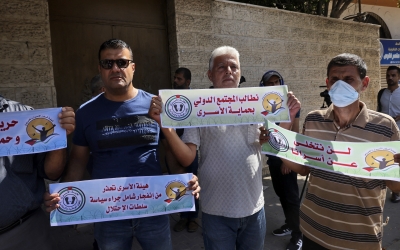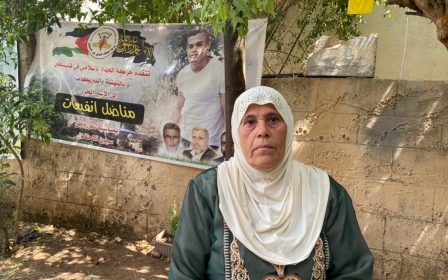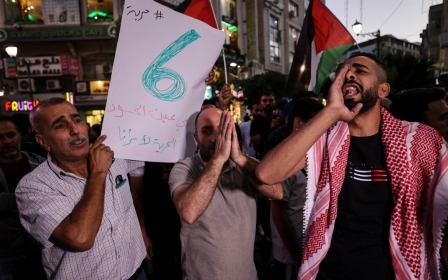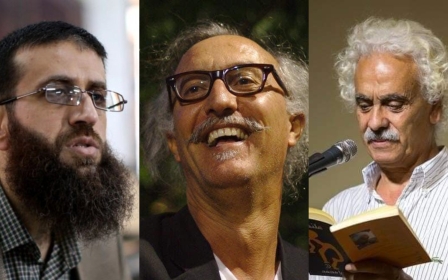Palestinian killed during 'day of rage' solidarity protests for prison escapees
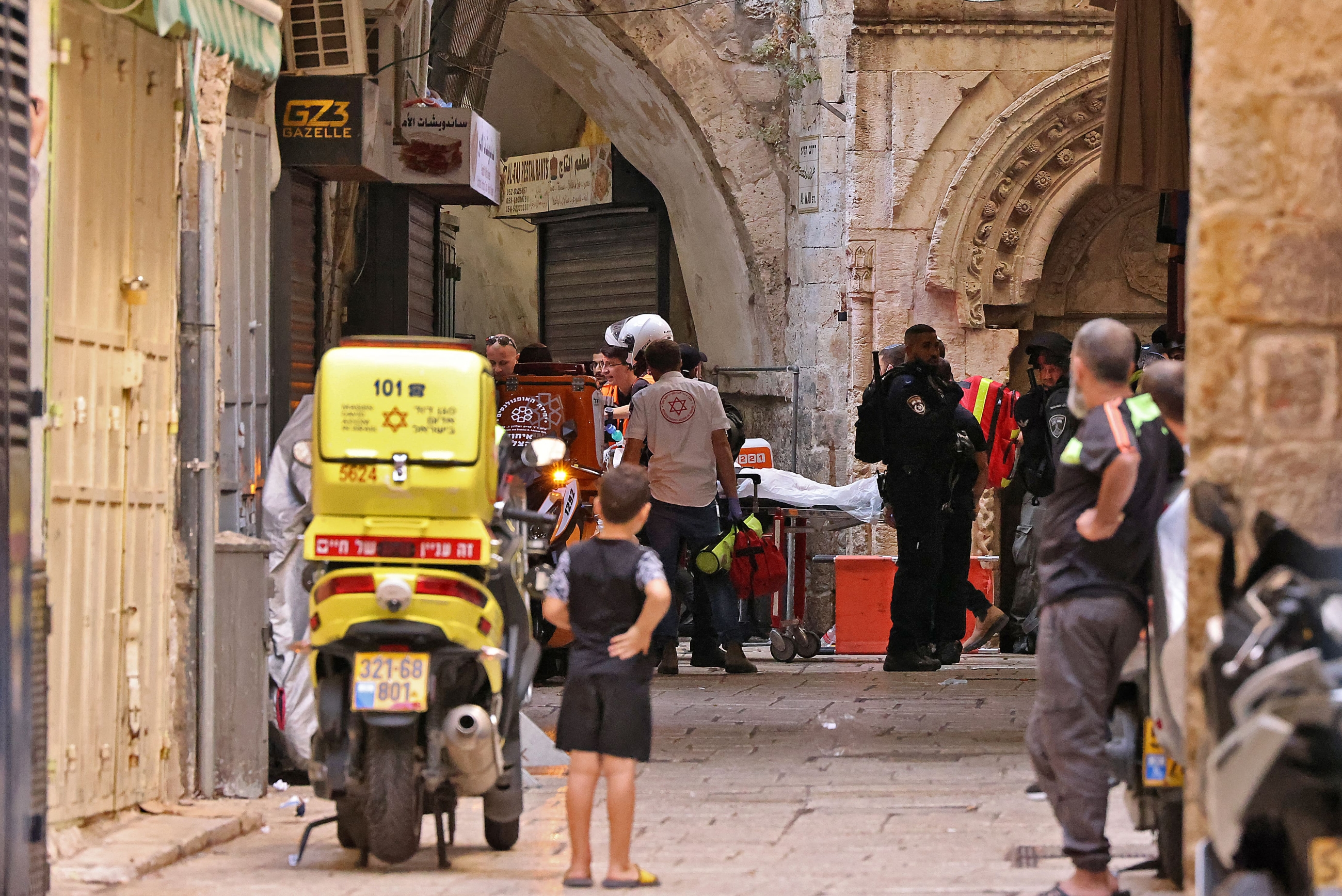
Palestinians protested on Friday in several towns in the occupied West Bank, East Jerusalem and the besieged Gaza Strip in a "day of rage" in solidarity with prisoners inside Israeli jails, following the escape of six inmates from the high-security Gilboa prison on Monday.
On Friday, Israeli forces stormed al-Aqsa Mosque compound, following the end of prayers, and dispersed a sit-in protest held in solidarity with the prisoners, arresting one young man.
At the gates of the compound, a Palestinian man was severely wounded by Israeli fire. Israeli police said that Hazem al-Jolani attempted to carry out a stabbing attack and wounded a policeman.
Jolani, 50, a doctor from East Jerusalem's Shuafat neighbourhood, succumbed to his wounds in Hadassah Ein Kerem hospital on Friday afternoon. Israeli forces closed al-Aqsa's Lion's Gate following the incident and stormed Jolani's house in Shuafat, according to footage on social media.
Jolani, who according to his Facebook page had worked in China at hospitals in Guangzhou, Hunan and Shandong, specialised in nerves and orthopaedics at the Shamir Medical Center near Tel Aviv.
Elsewhere, to the north of the West Bank, in Araba, dozens of Palestinians protested and gathered at the house of Mahmoud Abdullah Ardah, one of the six Palestinian prisoners who had escaped from Gilboa, in solidarity with his family.
In nearby Azzoun, there were confrontations between Israeli forces and Palestinians, two of whom were injured, according to local media. There was also violence in Hebron, near the old city.
The Israel Prison Service (IPS) has launched a crackdown on Palestinian prisoners following Monday's escape, cutting break time to one hour a day, closing the prison canteen, and decreasing the number of inmates able to walk in the yard.
It also began relocating some 400 Islamic Jihad-affiliated inmates to separate them from one another. These measures, seen as "collective punishment" by Palestinian factions, rights groups and activists, led to rising tensions inside Gilboa, Megiddo, Rimon and Katziot prisons in Israel.
Some Palestinian prisoners inside Katziot prison in the Negev desert set seven cells on fire on Wednesday, in response to a raid on a section of the prison carried out by special units and Israeli soldiers deployed from a nearby military base.
Israel has also banned family visits for Palestinian prisoners and extended its "general closure" of the occupied West Bank to Saturday, as it continues searching for the prisoners who escaped from Gilboa.
On Monday, six Palestinian inmates tunnelled out of Gilboa prison after digging a hole leading from their cell toilet floor to access passages built during the prison's construction.
One of them is a former commander of the al-Aqsa Martyrs Brigades, and the rest are members of al-Quds Brigades, the military wing of Islamic Jihad. They dug the tunnel over the course of several months, according to an IPS official.
A 'resounding security failure'
Hamas, which governs Gaza, has called for a day of rage on Friday in solidarity with the Palestinian prisoners. It called on Palestinians to go "to points of contact, and engage with the enemy's army in response to its aggression towards the prisoners.
"Our prisoners in prisons are not alone, and our heroic people and their resistance are ready to make sacrifices and fight battles for the freedom of prisoners," Hamas said in a statement.
Islamic Jihad described the Israeli crackdown on Palestinian prisoners as a "retaliatory response from the occupation after the resounding security failure that afflicted the occupation and its security services," following the escape from Gilboa. "Any harm to the prisoners will not be tolerated, and we will not leave our prisoners alone and will not let them down," Islamic Jihad's statement said.
Wasel Abu Youssef, a member of the Executive Committee of the Palestine Liberation Organisation, said that Palestinian factions reject the Israeli "policy of harassment and Israeli violations against [the prisoners].
"What is required is a large popular rally in all [Palestinian] governorates, including Jerusalem and the Gaza Strip, in support of the prisoners... The issue of prisoners unites the Palestinian people in all areas of their presence," Abu Youssef said.
Since Monday, Israel has increased its military presence in the West Bank. Authorities have installed checkpoints at entrances to Palestinian towns, especially in northern West Bank towns, including Nablus, Jenin, Tulkarm and Qalqilya, where Israeli security officials believe the prisoners could have fled to.
Gilboa prison is 4km north of the West Bank and 14km west of Israel's fence with Jordan. On Thursday Jordanian officials denied media reports that the escapees had crossed into their territory.
Middle East Eye delivers independent and unrivalled coverage and analysis of the Middle East, North Africa and beyond. To learn more about republishing this content and the associated fees, please fill out this form. More about MEE can be found here.


